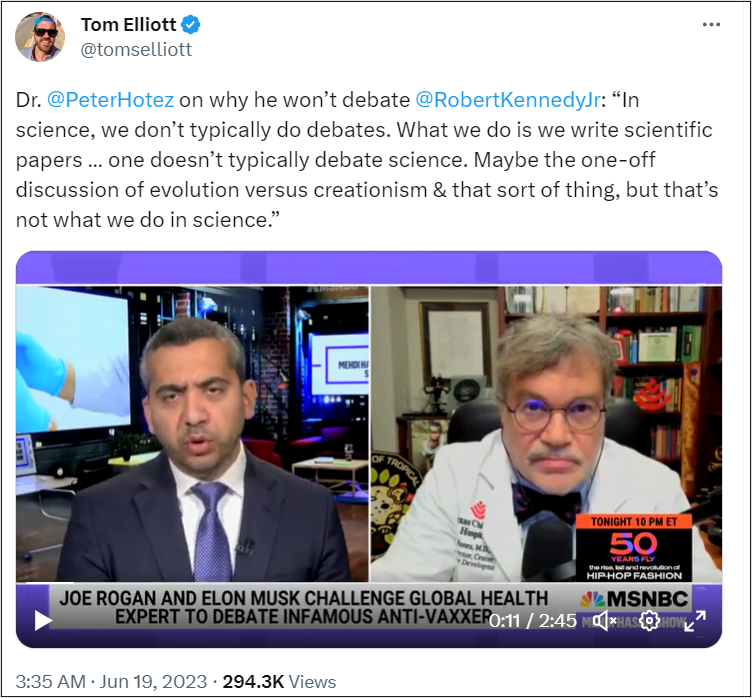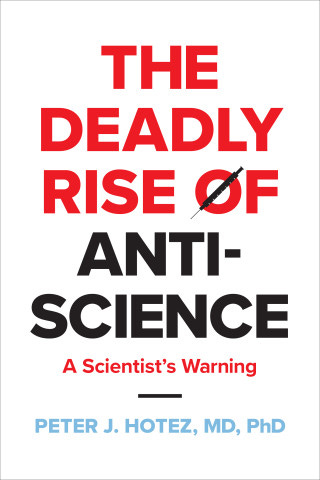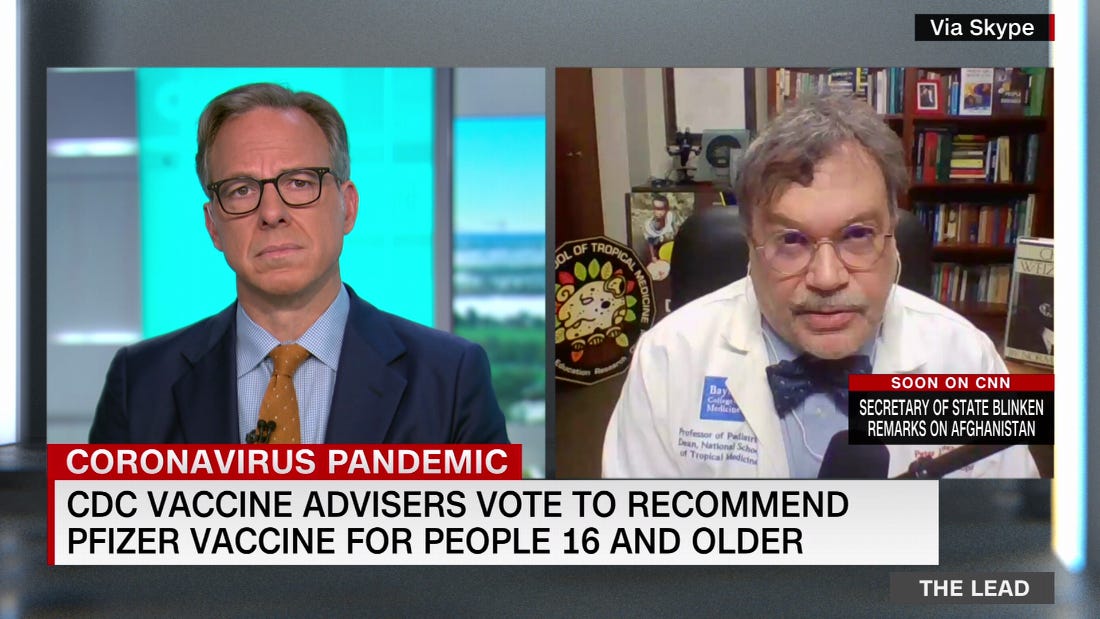Do it! On Debating Prominent Skeptics
Making sense of the Twitter kerfuffle among Hotez, Rogan, Musk, Cuban
Over the past few days, Twitter has been abuzz with debate over a debate. Here’s how The Independent characterized the episode:
It sounds like the beginning of a bad joke – but a renowned medical expert, a comedian, a billionaire and a Kennedy are all embroiled in a bizarre Twitter exchange about covid vaccines stoked by the platform’s owner himself.
I won’t give the full tick-tock, but in a nutshell, Joe Rogan, the world’s most popular podcaster, last week had Robert Kennedy on his show to discuss his skepticism over the efficacy and safety of vaccines. Other topics covered in the podcast were how Wi-Fi might melt your brain and how chemicals in water turn kids trans.
No one would have mistaken the show for a scientific conference, but it is representative of how many people think about these issues. Consider that Kennedy, who is running for the Democratic nomination for president, currently has the highest favorability rating of all presidential candidates, Democrat or Republican. Whether his views are accurate or not (and to be clear, many of his views are not accurate), they are prominent and likely to become more so.
Enter Dr. Peter Hotez, a distinguished scientist and prolific media commenter on what he calls “anti-science.” In response to the Rogan/Kennedy podcast, Hotez Tweeted to his 400,000+ Twitter followers that the podcast was “nonsense” and “misinformation.”
Rogan responded to Hotez with a demand that he come onto his show and debate Kennedy, offering $100,000 to a charity of Hotez’s choice. Hotez refused the offer (asking instead in a since-deleted Tweet for a $50 million endowment). Elon Musk jumped in to support Rogan — billionaire Mark Cuban entered the discussion to defend Hotez. And off we went.

Hotez, along with many scientists and journalists, responded to the kerfuffle by saying scientists don’t debate cranks. Scientific debates don’t occur on podcasts, they say, but in peer-reviewed journals and staid academic conferences. Giving cranks airtime, they say, only legitimizes their fringe views.
As a B-level public intellectual myself, I’ve had many occasions to face the challenge of dealing with prominent people who hold contrarian, skeptical, and even outright wrong views in my areas of expertise. Based on my experiences, I think Hotez and those who have rallied around his “do not debate” stance are missing a huge opportunity here. Hotez should not only take Rogan up on his offer, he should also welcome it — and here are three reasons why.
Hotez is already debating Kennedy

Hotez has engaged Kennedy’s anti-vax views on many occasions, including in his book, Vaccines Did Not Cause Rachel's Autism: My Journey as a Vaccine Scientist, Pediatrician, and Autism Dad. For Hotez, a choice over whether or not to engage Kennedy’s fringe views has already been decided in the affirmative. Hotez chose to respond publicly to Rogan’s podcast with Kennedy by calling it “misinformation.”
Guess what? With Hotez’s claims about Kennedy’s view — and I think Hotez is right here — he has also created an obligation to engage. Those he was criticizing took him seriously and responded as we might expect they would, by challenging him to a public debate over those ideas.
The question now for Hotez is not whether to engage what he believes to be “anti-science” but how. Hotez has absolutely no objections to showing up on friendly cable news channels CNN and MSNBC. He is an incredibly skilled communicator, telegenic and brilliant. He should know that you can’t swim without getting wet.
Scientists are pushed these days to engage in “science communication.” Refusing perhaps the largest public platform that Hotez has ever been offered to debate the subjects on which he is a global expert with those he has most vehemently criticized is to step back from “science communication.” It may not be comfortable engaging with those who traffic in misinformation, but once we commit to “science communication,” obligations follow.
Hotez knows much more than Kennedy (and Rogan) and is a highly skilled communicator
We all know that public debates are not won and lost based on who better understands current science. Of course not. There is a significant element of presentation and drama in any public communication, including “science communication.”
Look at Hotez above on CNN. He knows all about the importance of imagery and symbolism. The lab coat, bow tie, and the carefully staged props behind him — he is not just a medical expert, but a communication expert. He has vast experience speaking to the public in quick media hits, and he does it very well.
Had Joe Rogan been calling out a brilliant scientist with no media experience, or a scientist with a lot of media appearances but little actual knowledge, I’d come down on the side of recommending that a highly visible, public debate would be a bad idea. But if not Hotez — then who?
Debate is good for democracy, and in fact it is necessary
I often think about the following quote from the late Richard Rorty:
“In democratic countries you get things done by compromising your principles in order to form alliances with groups about whom you have grave doubts.”
The main purpose of a public debate over issues is not necessarily to change peoples’ minds about science or values, but to establish greater public trust in the legitimacy of science. Trust and legitimacy in expertise is necessary reconcile the challenges of reconciling expertise held by only a few, with democratic governance where everyone gets a vote.
By participating in a debate, Hotez would send the following message:
I disagree with your views and I can explain why in clear and accessible terms. I am not fearful of engaging, because I know my stuff. Nor do I view you to be contemptible and not worth engaging. We are fellow citizens and can model constructive disagreement. I respect you as a participant in American democracy, but I am certain that your views on science and policy are harmful to the nation.
By not engaging, Hotez instead sends this message:
You are a crank and not worth my engagement, except from afar. I will challenge your views only from the safe ground of politically friendly media. If you challenge me in response to my criticisms of you I will hide behind the cloth of “science.” My authority and status, and that of all science, should be more than enough to command your deference. Listen to my friends, who agree with me.
As we consider this episode it is essential to understand that Hotez is not doing science — he is participating in democracy. Ultimately, for experts “science communication” is not about sharing facts, but about making peace with democracy. Engagement may not change hearts and minds, but it may win them.
Postscript
I have no illusions about how challenging “science communication” is in practice. I know because I’ve been doing it for decades. Like a dog chasing a car, experts engaging in public should consider what might happen when they succeed in their quest. Hotez has caught the car. Now what?
You can see me here debating a self-professed climate skeptic just last week.
And you can read here about my debate challenge more than a decade ago with a highly visible and popular “crank” who sought to delegitimize peer-reviewed and consensus science.
I welcome your comments, questions and perspectives on the issues raised here, even (maybe especially;-) if you disagree. Here at THB we welcome informed engagement and respectful disagreement. Honest brokering is a group exercise. Please hit the heart and Restack buttons above, and please share on your favorite social media platform.






I have as long a list of credentials as Hotez. So do McCullough, Risch, Bhattacharya and a long list of others. Many of us believe Hotez is wrong in much of what he espouses and I am surprised that you have not given the data (especially the pediatric data) enough of a look to feel similarly and that you are, essentially, just defending him because he has a white coat.
Having said that, I also do not agree with much of what RFK Jr. believes. But vis-à-vis covid and public health failures in addressing that debacle, RFK Jr. appears to actually have looked at the data, not the government-sponsored script.
Teaching medical students and being on the international lecture circuit for decades, I know what is involved in a debate and so do you. I have never turned one down with a relatively neutral moderator (including some I really, really did not want to do) and have had some of my greatest successes in laying out presentations that essentially left the other party speechless...including some of those I did not wish to do. Debating topics of interest to the scientific community is a long-standing tradition. Somehow, in covid, it is not allowed. This looks bad for science and for Hotez and just confirms that the entire covid Scientism community insists on living in an echo chamber. (Whether that is true or not, and I have essentially found it to be so, it surely gives that appearance.)
If Hotez seems threatened by RFK Jr, Rogan already offered any competent scientist representing another viewpoint. I have no doubt those that I mentioned above (and I have many others) with credentials similar to Hotez would be happy to fill in for RFK Jr. That "don't debate a crank" is just a sham excuse, and it is becoming obvious to everyone as to why.
Peter McCullough wrote a superb piece on Hotez just now. It also references a piece by A Midwestern Doctor which is definitive. I strongly recommend that you, Roger, read both. I am sure your readers will. https://petermcculloughmd.substack.com/p/rfk-jr-challenges-peter-hotez-to-7fc
Frankly, I find the "we won't debate anyone who does not agree with us" recitations to be repellant, unscientific, and another blow to the credibility of science.
I've not seen Hotez before. I don't watch CNN or MSNBC.
Matt Taibbi's "Racket News" put together this montage of Hotez' appearances however and if this video is accurate his objectivity and "smartness" will be easily challenged by someone like Kennedy. https://www.youtube.com/watch?v=Sj6-QDVYbv8
Frankly I think Hotez is afraid of getting caught having to defend his many dumb recommendations on COVID vaccines.
At least on COVID vaccines, Kennedy vs Hotez would be a blowout. Hotez' credibility in other areas will then be destroyed. If I were Hotez (a scary thought) I would refuse to debate as well.